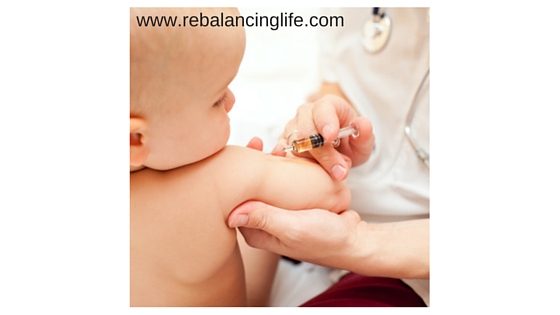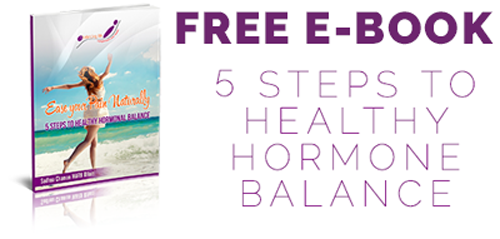Every parent wants to do the best for their child. Bringing up a new born baby is a huge responsibility and requires making decisions for the most precious gift that a parent can be blessed with.
At times this can feel like an overwhelming responsibility and we may find ourselves feeling quite vulnerable and not sure of what to do for the best!
So, in an effort to help anyone considering the pros and cons of vaccinations – here’s 5 key questions for parents.
What will happen if I don’t vaccinate my child?
It is generally accepted that having a vaccination is safer for your child than not having one. They’re not 100% effective in every child, but they’re the best defense against the epidemics that once killed or permanently disabled millions of children and adults.These dangerous diseases are much less common today but by not having your child vaccinated, you are potentially opening them up to the risks of serious health issues in future.
So that’s one side of the equation but those people who argue against vaccination will say that the risks are so small in the 21st century that the process is unnecessary. The suggestion from some people is that marketing campaigns in favour of inoculations create an exaggerated sense among parents of the risks their children face without them.
No-one can say for certain what will happen if a child is not vaccinated, so the onus remains with parents to weigh up the potential risks involved under both sets of circumstances.
I want to strengthen my child’s immune system, will vaccinations help me do this?
Those that are in favour of vaccinating say that vaccines work by stimulating our immune system to produce antibodies (substances produced by the body to fight disease) without actually infecting us with the disease. They trigger the immune system to produce its own antibodies, in the same way it would if the body were infected with a disease. This is called ‘active immunity’. If the vaccinated person then comes into contact with the disease itself, their immune system will recognise it and immediately produce the antibodies they need to fight it.
Those that oppose this view say that whilst the idea of immunising is over 200 years old, it is not as effective as the pharmaceutical companies, doctors and government agencies lead the public to believe. The opposing claim further suggests that the process of artificially injecting through the skin means that one branch of the immune system, based on oral ingestion, is already being bypassed entirely. There is also some concern that by wrongly stimulating the immune system there is a risk that it remains in reactive mode which may lead to other health conditions such as asthma, eczema and allergies, as well as other chronic health concerns.
Are vaccinations safe for my child?
The NHS advises that vaccinations are quick, safe and effective. They say that once your child has been vaccinated the body can fight disease more effectively. Most side effects are mild and short lived such as a temporary fever, redness or swelling around the injection site for further information visit www.nhs.uk/Conditions/vaccinations/Pages/benefits-and-risks.aspx
The opposing view is that while we are told that vaccinations are safe we are not advised about the dangerous chemicals and other toxins that are included in the vaccinations which have a far more damaging effect on the body. Furthermore we are not advised about the risk of long term complications that may occur in a child as a result of vaccinations. There are far more children now than ever before experiencing chronic health conditions such as asthma, eczema, autism and ADHD, which some people argue could be linked to vaccinations administered many years ago and which have ultimately been caused by a weakened immune system. For further information visit www.informedparent.co.uk/about-us
Are the ingredients in the vaccine safe for my child?
Vaccines are developed as a virus or bacterium that produces the target disease. These are mass produced in laboratories by infecting cells grown in tissue culture. In order for the vaccine to be effective in the body there needs to be some sort of catalyst which firstly improves the way the vaccine works and secondly helps to increase the shelf life (how long the vaccine can be kept for – the use by date).
The three main substances added to vaccines are:
ADJUVANTS or ENHANCERS – to make the vaccine more effective by stimulating your immune system, making it respond quicker and more strongly to the vaccines.
STABILISERS – to stop the vaccine deteriorating when it is exposed to changes in the environment, such as light and temperature.
PRESERVATIVES – to increase the vaccine’s shelf life
Some of the adjuvants used are MSG, antifreeze, Phenol Formaldehyde, Glycerin and Thimerosol, which is now banned from vaccinations for babies and children in the UK. Some scientists and vaccine researchers such as Janine Roberts say that these additional ingredients are far more damaging than we are led to believe and that there is a whole process that takes place before these substances are added that we are not made aware of. There are many studies that have taken place to show the effects that these ingredients have had on the body. To research further visit www.arnica.org.uk
Many parents say that the thought of questioning vaccine safety had not even crossed their mind and that had they received information on the ingredients or the list of possible side effects provided by the vaccine manufacturers they may not have had the vaccination themselves or allowed it to be given to their child.
How can I find out more about the side effects of vaccines that have been reported?
There is a procedure in place for reporting any side effects from medicines taken which includes vaccinations made available to the public. The Medicines and Healthcare Products Regulatory Agency (MHRA) is the organisation responsible for checking on the safety of vaccines. The MHRA collects its information through the Yellow Card Scheme where anyone can report a suspected side effect.
Critics of vaccines argue that findings from the Yellow Card System are not commonly brought to the attention of the general public. Furthermore, if vaccines do cause health problems, they are likely to occur much later than when the vaccine was administered and therefore they are not considered to be linked to a particular vaccine. As a result there is scope for the statistics and information that is made available to the public to be unreliable.
So, where do you go from here?
Clearly, the issue of whether or not to vaccinate your child is a complex one. Decision making from the perspective of parents can be extremely difficult without any definitive answers on whether it is safer to go ahead with an inoculation or not. It is well worth conducting your own investigations, whether online or with fellow parents, to get a sense of the concerns other people and organisations have around the issue.
In the end, however, because the debate about whether or not to inoculate children is ongoing, you can only do what you feel in your gut is the best and safest option for your child. There is no right or wrong answer or approach, so what matters most is that you feel as a parent that you’ve done all you can to protect your child.
I hope you’ve found this blog useful and I would love to hear your views on this or any other subject, use the comment box below to let me know what you think.
This article is for information only. The ultimate decision to vaccinate remains the responsibility of the parents and the guidelines set by the country of residence. Always consult your health care professional in the first instance.
If you liked this article please share it with your friends and come find me on Facebook and Twitter.
Bye for now!





